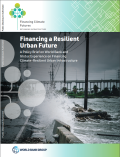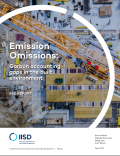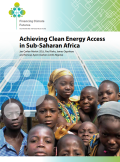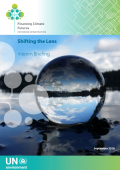This report, Fiscal Policies for Development and Climate Action, a World Bank report developed in collaboration with UNIDO, informs the dialogue on the evolving role of macro-fiscal management in the context of a changing climate and warming world. The report also aims to better equip finance ministries in developing countries with the tools to understand, appraise, and implement Environmental Tax Reform (ETR) policies and climate change adaptation and risk-management strategies.

This Report Financing a Resilient Urban Future: A Policy brief on World Bank and global experience on financing climate-resilient urban infrastructure draws on World Bank experience and datasets and a review of academic and grey literature on financing three core urban infrastructure systems – water, transport, and energy.

Life-cycle assessment (LCA) studies are the main tool used to measure the carbon footprints of building products at each phase of their cradle-to-grave lifespan (i.e. production, use, and end of life). While LCAs are the best-available tool for evaluating the greenhouse gas (GHG) performance of alternative building products and designs, policy makers and building designers should be aware there are also limitations, challenges, and uncertainties. Therefore, the purpose of this report is to identify:

This report takes an in-depth look at the challenges and opportunities to provide clean energy access in sub-Saharan Africa.

This report Financing Climate Futures: Shifting the Lens - Interim Briefing is one part of the broader Financing Climate Futures initiative focusing on the identification of critical uncertainties posing constraints to aligning financial flows with climate objectives and in particular infrastructure investment.
